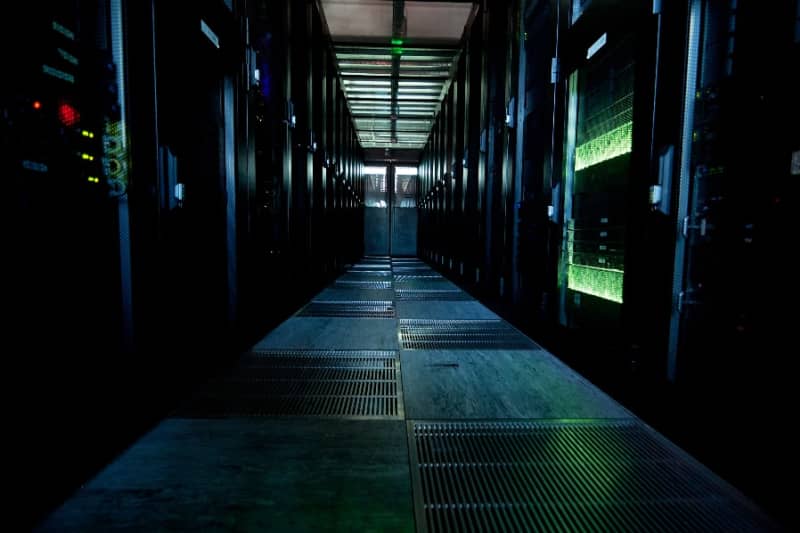Edge colocation is a crucial form of colocation, implemented in many industries and fields around the world. The research shows that the overall data centre market is set to grow by 5.1% every year until 2032, showing just how important edge colocation can be. This growth is only set to accelerate further too, driven by anticipated improvements in bandwidth affordability, making edge colocation even more important for modern brands.
At M247, we’re experts in the world of connectivity, providing a range of online solutions to benefit every brand. We’ve created this page to inform you about edge colocation, giving you all the information you need to hopefully integrate this form of colocation into your business operations.
If you’d like to enquire about our premium edge colocation services, we’ll be happy to help – please speak to a member of our expert team here.
What Is Colocation?
To learn more about edge colocation, it’s important that you first understand what colocation is. Essentially, it’s a term used to refer to a service offered by data centres, in which businesses rent space to contain their servers and computing equipment. Housing your own servers and computing hardware can be difficult and expensive if you run a small business, so having the option to move your equipment to a specialised hub can be highly beneficial.
You will have to pay a fee for colocation services, but it can often be cheaper than creating your own data centre, so the price is usually cost-effective. You’ll usually get a range of different features when you hire a colocation centre, including energy and power, cooling methods, and round-the-clock security features. Combine that with the data infrastructure provided and you’ve got a dynamic server space that can really benefit your business!
Understanding Edge Colocation
So, how does edge colocation differ from traditional colocation?
We understand that computer-related terminology can often be confusing for many people – particularly when it comes to things like edge colocation. In essence, this form of colocation is the process of renting server space to tier two different markets.
The term ‘two-tier markets’ refers to the way in which services are provided and distributed across the two levels of data centres, optimising speed, efficiency, and accessibility for different workloads and user types. The first tier refers to core data centres such as cloud computing hubs and enterprise data centres, whereas the second tier refers specifically to edge data centres, which are usually smaller facilities located closer to their users.
Edge computing is particularly useful if you’re moving your business premises to another location or opening a new branch of your business in another area of the country. The likelihood is that you’ll need to source another data centre for your new location, which can be difficult – particularly if you’re moving from a metropolitan area with numerous choices to a more rural site.
However, by implementing edge colocation into your business, you can overcome these logistical challenges. Edge colocation enables modern businesses to find and rent dynamic server space by using a highly connected data centre in a two-tier market. Rural areas and markets are often ignored by larger connectivity providers, whereas edge computing data centres enable them to bloom by offering a modern server solution closer to these areas.
Essentially, computing resources can be moved closer to your location, regardless of the area you’re based in or the quality of the infrastructure in your area. Your chosen provider can also manage the entire distribution of your edge data centre network, as there is less infrastructure and resources required than when using a typical colocation service.
Like with traditional colocation, you’ll also get your power, electricity, security and cooling included, making for an extremely useful computing solution for modern brands.
What Are the Business Benefits of Edge Colocation?
We briefly covered some of the business benefits of edge colocation in the previous section, but there are many more advantages to cover.
For one, you can rest assured that your data security will not be reduced when using an edge colocation data centre, as despite their typically smaller size, they can still provide the same protection and security expected from a traditional colocation data centre. Cyber security is a requirement of any data centre, and will usually be included in the fee you pay, shared between the different businesses using each centre.
One of the main benefits of using edge colocation is that it gives your business a competitive advantage in your field. Data centres can be utilised in otherwise underserved and underfunded areas – in turn, this leads to several other advantages:
- Faster connections and internet speed: Speed is one of the most important factors of any business, so ensuring your connections are as fast as possible is a necessity in the modern age. Slowdowns and downtime can negatively affect your business operations, pushing potential customers towards your rivals instead. Edge colocation makes everything faster, shortening the travel distance of data delivery.
- Increased data security: Your data can also be kept secure with edge colocation. Cyber security protocols are implemented that can segregate compromised sections of your network without the need to shut down the entire network, saving you much-needed time and money. Most edge colocation centres offer extra layers of security to protect against cyber threats such as DDoS attacks, offering a level of security matched by traditional colocation data centre design.
- Decreased latency: By strategically placing your servers and computing resources closer to your end users and devices, you can reduce latency for all. This is because the data has to travel across shorter distances to reach its endpoint, reducing your overall transmission time. Data can also be handled locally, ensuring that congestion is reduced across the broader network, eliminating delays and boosting response times.
- Reduced running costs: Localised data processing requires a lower workload for your central servers, reducing energy costs for both cooling and operation. This isn’t the only way edge colocation is cost-effective though, as it also processes data at the source, instead of relying on distant data centres. This means that the consumption of bandwidth resources should be lowered too, giving businesses with high data traffic significant cost savings.
- A greater degree of scalability: Edge computing services are flexible and can be scaled down to your own business requirements – they can also be useful for tailoring your business operations to tier-two markets. Your computing and data requirements can be scaled more effectively, enabling you to create personalised content for your customers. Today’s consumers require a personalised service, which can now be delivered at the same high performance as conventional static content.
The rewards don’t stop there though. If you’ve successfully implemented your new edge colocation strategy, your business can become more accessible to users, both in the UK and worldwide. Failure points on the network are reduced too, disposing of the extra load on your computing infrastructure. All in all, users in tier-two markets will experience a quicker digital experience with less downtime, ensuring they keep coming back to your business in years to come.
How Do I Choose a Suitable Edge Colocation Service?
When searching for a new edge colocation solution for your business, it can be hard to know where to turn at first, as there are many companies offering similar services at the moment. The best partner for you will depend largely on your own business needs and requirements, having the capabilities needed to help you execute your current and predicted business plans.
You should consider the following things when choosing an operations team:
- Flexibility: Flexibility is important for any growing business, enabling you to scale your business operations based on future trends and predictions. A good edge computing company should enable you to start at any size, with the option to scale as your business grows.
- Reliability and uptime: Your chosen provider should have a good record of operating performance, and this information should be available for prospective clients to browse. If your desired provider is running below the industry standard, you should continue your search.
- Edge locations: You also need to calculate how many nationwide edge locations are available with each provider you’re considering. The more locations you have, the lower your latency will be, benefitting both your business and the end-user.
At M247, we’re a premier connectivity company based in the UK, with two of our many services being our colocation and edge colocation solutions. We believe we’re the best colocation partner in the business at the moment – please check out our Trustpilot reviews for more information.
M247: An Edge Colocation Partner You Can Trust
Edge colocation is an important solution for modern businesses, and one that can provide a number of benefits – particularly if you’re considering a move to a less metropolitan area. However, choosing the right colocation partner can be difficult, which is where M247 steps in to help.
Here at M247, we’re the leading connectivity and cloud services provider for growing businesses, with our colocation and edge colocation solutions being just one part of the package.
To find out more about how we can help you with your connectivity needs, please make an enquiry today.
Additional reading:




